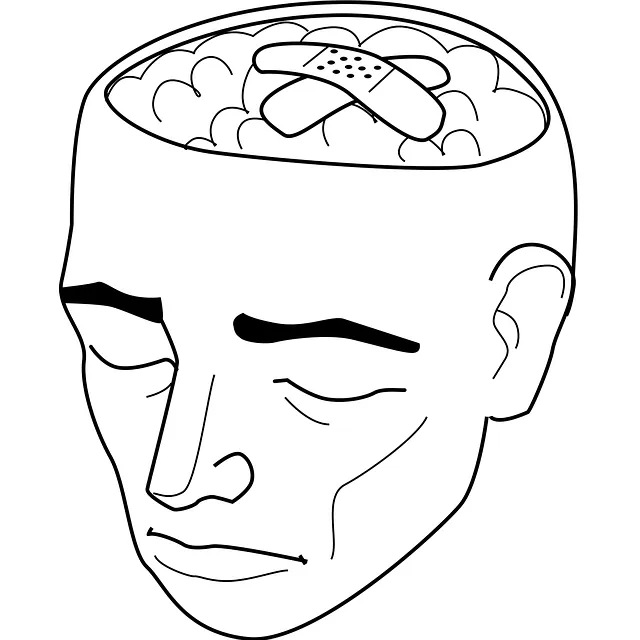Mental wellness group facilitation in Longmont is a key component of enhancing emotional well-being, especially with Kaiser's mental health therapy coverage. Facilitators create safe and inclusive environments where participants share challenges and coping strategies, reducing stigma around mental illness. Effective techniques include emotional regulation skills, peer support, and community outreach programs that cater to diverse populations. This collective approach contributes to broader stigma reduction efforts, ensuring individuals feel understood and supported in their journeys towards better mental health. Longmont residents with Kaiser coverage can benefit from these services, accessing comprehensive mental wellness support through group facilitation.
In today’s digital era, supporting mental wellness is more crucial than ever. This article explores effective group facilitation techniques, offering insights into enhancing therapeutic environments. We delve into understanding mental wellness groups and their benefits, providing a comprehensive guide for facilitators and participants alike. With a focus on Longmont, we also examine Kaiser’s coverage of mental health therapy, addressing the question: does Kaiser cover mental health therapy in Longmont? Best practices and practical tips ensure optimal group sessions, fostering a supportive community.
- Understanding Mental Wellness Group Facilitation
- Techniques for Effective Group Sessions
- Kaiser's Coverage for Mental Health Therapy in Longmont
- Best Practices for Facilitators and Participants
Understanding Mental Wellness Group Facilitation

Mental wellness group facilitation is a specialized skill that involves guiding and supporting individuals through shared experiences aimed at enhancing emotional well-being. In Longmont, understanding this process becomes crucial when considering options like Kaiser’s mental health therapy coverage. Facilitators play a vital role in creating a safe and inclusive environment where participants can openly discuss their challenges and strategies for coping with various forms of mental illness. This approach not only promotes individual growth but also fosters a sense of community among members, which is essential in reducing the stigma surrounding mental illness.
Effective facilitation techniques focus on emotional regulation skills, encouraging active participation and peer support. Community outreach program implementation can significantly enhance these groups’ impact by extending their benefits to diverse populations. By addressing mental wellness collectively, facilitators contribute to broader mental illness stigma reduction efforts, ensuring that individuals feel understood and supported in their journeys towards better mental health.
Techniques for Effective Group Sessions

Creating a supportive environment is key to facilitating effective group sessions for mental wellness. One powerful technique is encouraging open and honest communication among members. This can be achieved through icebreaker activities that foster familiarity and trust, allowing individuals to share their experiences in a safe space. Additionally, incorporating self-awareness exercises like mindfulness meditation or reflective writing promotes individual introspection and understanding.
Group dynamics can further enhance mental wellness by fostering support systems and encouraging peer-to-peer learning. Activities that promote active listening and empathy-building strengthen these connections. Moreover, incorporating confidence-boosting exercises, such as positive affirmation sharing or goal-setting workshops, empowers individuals to navigate their mental health journeys with resilience. These techniques, combined with a structured yet flexible agenda, ensure Longmont residents seeking therapy have access to effective support, potentially alleviating concerns about Kaiser’s mental health coverage in the area.
Kaiser's Coverage for Mental Health Therapy in Longmont

In Longmont, Kaiser offers comprehensive mental health services, addressing a wide range of concerns from routine stress management to more complex issues like trauma. Their coverage includes therapy sessions with licensed professionals, making mental wellness support accessible to many. The healthcare provider promotes a holistic approach, encouraging patients to explore various techniques such as mindfulness meditation and self-care practices to enhance their overall well-being.
Additionally, Kaiser provides specialized trauma support services tailored to help individuals navigate the challenges associated with traumatic events. These services are designed to create safe spaces where people can process their experiences, fostering resilience and recovery. Longmont residents seeking mental health therapy can turn to Kaiser for these valuable resources, ensuring they have access to the care they need for their minds as well as their bodies.
Best Practices for Facilitators and Participants

Mental wellness group facilitation is a powerful tool when executed with best practices in mind. Facilitators should foster an environment that encourages open and honest communication, ensuring every participant feels heard and respected. Active listening, non-judgmental attitudes, and inclusive language are essential components of this process. Encouraging participants to share their experiences and perspectives creates a supportive space for building empathy and understanding.
Additionally, facilitators can enhance group dynamics by incorporating effective communication strategies, such as reflective questioning and active participation. Regular self-awareness exercises can help members gain insights into their thoughts and emotions, fostering personal growth. Facilitators should also guide participants in developing self-care routines tailored to their unique needs, promoting better mental health management. Longmont residents fortunate enough to have Kaiser coverage for mental health therapy can benefit from these practices, ensuring a comprehensive approach to well-being within group settings.
Mental wellness group facilitation plays a vital role in supporting individuals’ emotional well-being. Techniques discussed, such as active listening and structured activities, empower facilitators to create safe, engaging environments. Understanding best practices ensures positive outcomes for both facilitators and participants. Moreover, knowing that Kaiser’s coverage includes mental health therapy in Longmont offers additional support for those seeking help. By combining these strategies and resources, individuals can navigate their mental wellness journeys with enhanced resilience and community backing.






